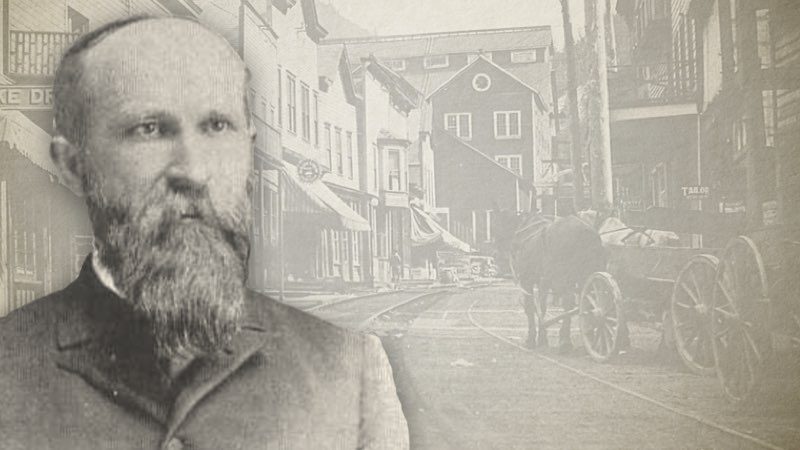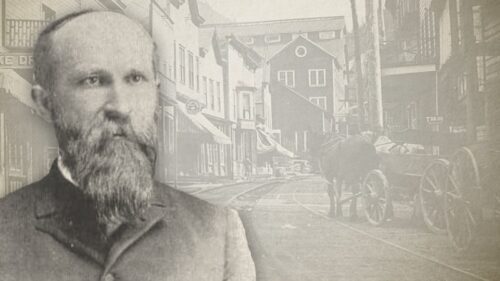J. A. Shakelford
Author of the “Compendium Of Baptist History”. Please inform the Editor of the AHB (via the Contact page) if you have biographical information on this author. Thank you.
Shackelford on Baptist History (Complete)
-
Chapter 12: Waldensean Period (Continued)
Baptists have never held to the doctrine of apostolic succession, but have generally believed in church succession, and have always claimed that all authority is vested in the churches as the executives of Christ. While this is true they have ever had a high regard for a stated ministry. They have not been willing to force upon their members the responsibilities of ministerial obligations and duties until they have been duly set apart for this work, according to the apostolical injunction, by ordination. It sometimes occurred, during the severe persecutions to which the Waldensean churches were subjected, that their ministers were either all killed or driven out of the country, and there was no one left to administer the ordinances of the Lord's house. A…
-
Chapter 13: Heresies and Persecutions
From A.D. 426 to 1500. Very early in the history of Christianity, as has already been observed, heresies of different kinds commenced to creep into the churches. The true churches being independent of each other, in their organization and government, were but little affected by these heresies. Some of the churches, however, soon lost their independent form, and several combining together formed synods. A number of churches formed a single diocese and were under the control of one bishop. When these churches forming a single diocese became corrupted by false doctrine, or when the bishop begun to preach heretical doctrines, the whole diocese became corrupt. In this way came about the centralization of power which finally resulted in the establishment of popery. A.D. 416. Just…
-
Chapter 14: Heresies and Persecutions (Continued)
It would seem that the indignities visited by a ruler upon one of his honored subjects, could not be greater than the one which has just been narrated, much less could it be perpetrated by one claiming, as does the pope, to be God's vicegerent upon earth. Raymond VI., count of Toulouse, however, was subjected to a still more humiliating punishment. The Albigenses abounded very largely in the territories of this count, and he extended to them his protection and patronage. He was even charged with having imbibed some of their views. This aroused the indignation of the Catholics against him, and he was excommunicated by the pope. Not long after this one of the inquisitors was assassinated, and Count Raymond was accused of being…
-
Chapter 15: Reformation of the Sixteenth Century
"And there came one of the seven angels which had the seven vials, and talked with me, saying unto me, Come hither; I will show unto thee the judgment of the great whore that sitteth upon many waters; with whom the kings of the earth have committed fornication. So he carried me away in the spirit into the wilderness; and I saw a woman sit upon a scarlet colored beast, full of names of blasphemy, having seven heads and ten horns. And the woman was arrayed in purple and scarlet-color, and decked with gold and precious stones and pearls, having a golden cup in her hand full of abominations and filthiness of her fornication. And upon her forehead was a name written, MYSTERY, BABYLON THE…
-
Chapter 16: Waldensean Period (Concluded)
We left off the history of the Waldenses at the close of chapter twelfth, in order to give some account of the heresies and corruptions of the Catholic party, which gave rise to the reformation of the sixteenth century. We are told that when the witnesses “shall have finished their testimony, the beast that ascendeth out of the bottomless pit shall make war against them and shall overcome them, and shall kill them." (Rev. 11:7) This prophecy had its fulfillment in the year 1686, when the Waldenses in the valleys of Piedmont were either all killed or driven to other countries. A continuation of their history is a continuation of the same old story of persecutions, trials and sufferings. If the reader grows tired of…
-
Chapter 17: Anabaptists, Or, Baptists
The term Anabaptist was applied to all that class of persons who were known by the more general name of Waldenses. While the name Anabaptist was not so generally used until after the reformation of the sixteenth century, it was occasionally used as early as the beginning of the third century. Literally the word means to baptize again, and was applied to all those Christians who rebaptized those who came over to their communion from the Catholics. These people repudiated the name, however, in its specific meaning, claiming that it was not re-baptism, since the Catholic church, being an apostate church, could not administer Scriptural baptism. After the close of the Waldensean period the prefix ana begun to be left off and the simple name…


